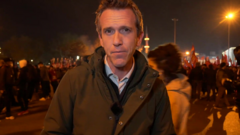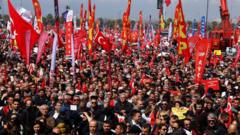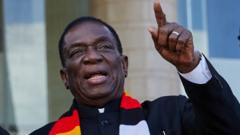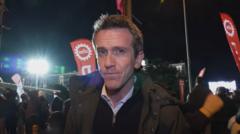Mark Lowen's deportation came after he reported on significant protests surrounding Imamoglu's arrest. The episode highlights concerns over press freedom in Turkey, with rising tensions as the government responds to public dissent.
BBC Correspondent Mark Lowen Deported from Turkey Amid Widespread Protests

BBC Correspondent Mark Lowen Deported from Turkey Amid Widespread Protests
Mark Lowen, a BBC correspondent, has been deported from Turkey following his arrest while covering protests linked to the controversial detention of opposition politician Ekrem Imamoglu.
BBC correspondent Mark Lowen was deported from Turkey after being detained for 17 hours in Istanbul, the BBC confirmed on Thursday. Lowen's reporting in Turkey was focused on the protests triggered by the arrest of Istanbul Mayor Ekrem Imamoglu, who faces corruption charges he denies and is viewed as a key political rival of President Recep Tayyip Erdogan.
The BBC issued a statement expressing their concerns over the deportation, stating, “This morning (27 March) the Turkish authorities deported BBC News correspondent Mark Lowen from Istanbul… for being a threat to public order.” Lowen himself expressed his distress at being treated this way in a country where he lived for five years and emphasized the critical role of press freedom in democracy.
The situation escalated as protests erupted across Turkey, pushing back against what many perceive as a politically motivated arrest of Imamoglu. Authorities report over 1,400 detentions linked to these protests, and President Erdogan has denounced them, calling the demonstrators “evil.” Meanwhile, additional journalists have faced arrests, raising alarms about the state of media freedom in the country.
The Republican People's Party (CHP), Turkey's main opposition party, is planning a rally in Istanbul following the unrest, while the BBC's CEO for news, Deborah Turness, promised to advocate for Lowen and reiterated the organization's commitment to impartial reporting.




















